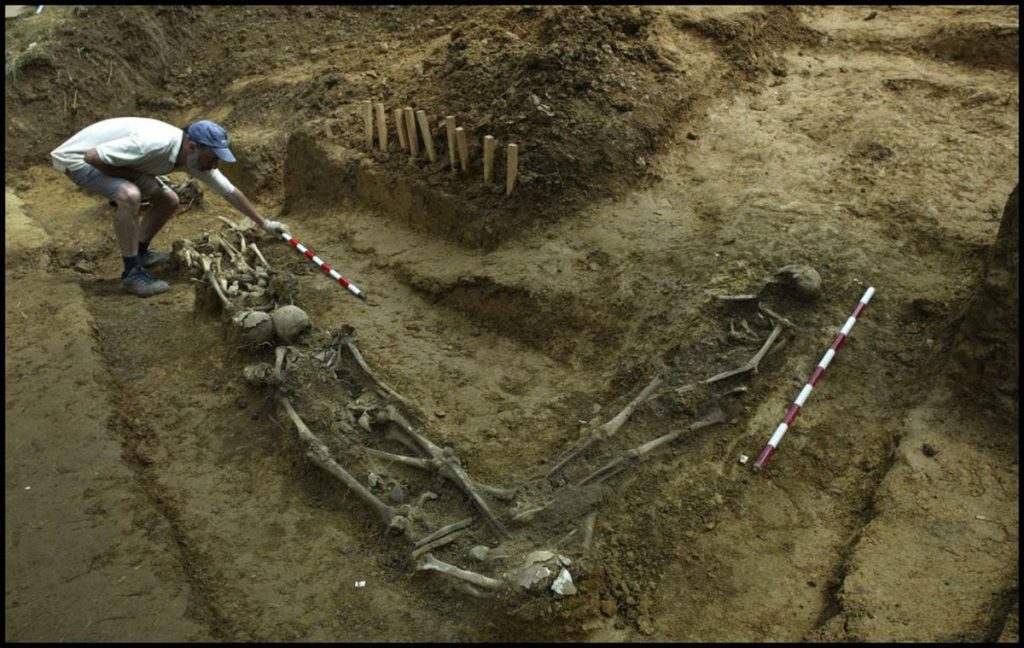Forensic expert Francisco Etxeberria has been involved in the recovery of remains from over 500 mass graves dating back to the Spanish Civil War. Thanks to his work with the Aranzadi team, hundreds of unidentified skeletons were able to be identified and returned to their families, all with a cause of death being identified as “violent homicide from a forensic medical point of view.” He discusses the potential consequences of the recent efforts by regional governments, particularly those led by the PP and Vox parties, against laws related to historical memory in Spain. Etxeberria notes that with political will, this issue could have been resolved much sooner, as there are still thousands of individuals who were executed and buried in mass graves during the war, some of whom remain unidentified. The collaboration between different levels of government and organizations had been key to progress in this area, but recent changes have slowed down the process significantly.
Pablo de Greiff, who previously served as a special rapporteur for the UN on truth, justice, reparation, and non-repetition, emphasized the importance of legislation related to historical memory in Spain as a response to international obligations. He criticizes the attempts by the PP and Vox to repeal existing laws, arguing that they fail to acknowledge the asymmetries in the treatment of victims from different sides of the conflict. Greiff points out that certain victims, particularly those from the Republican side, have not received the same level of recognition and reparation as others, and repealing laws aimed at addressing this imbalance is a step in the wrong direction.
Before the first national memory law was passed in 2007, Etxeberria and his team worked on exhumations of mass graves altruistically, providing closure to families of those who were killed during the war. He notes that the majority of requests for exhumations are for victims from the Republican side, but the State has supported requests from families of victims from the Nationalist side as well. The legislation passed in 2007 helped facilitate coordination between different actors involved in memory work, and the 2022 law solidified the State’s role in overseeing exhumations and identifications. Etxeberria highlights that during the tenure of former Prime Minister Mariano Rajoy, certain regions and municipalities stepped in to support this work when State funding was lacking. The recent steps to repeal or weaken laws related to historical memory signify a regression in terms of acknowledging and honoring the rights of victims.
The repeal of the memory law in Aragon has seen immediate consequences, such as the dismantling of the Technical Memory Commission, the removal of memory-related elements from educational programs, and the erasure of institutional portals focused on historical memory. The decision to cancel or alter educational initiatives related to the history of Aragon and human rights in schools has raised concerns about the potential whitewashing or revision of history in educational curricula. The central government is preparing to challenge the repeal of memory laws in various regions, as it believes that such actions violate international law and undermine human rights. Negotiations are ongoing with the affected regions to find a resolution, but legal action will be pursued if necessary to protect the principles of historical memory and truth.
The erosion of laws and mechanisms designed to address historical memory in regions like Aragon has sparked alarm among those who have been working to shed light on the atrocities committed during the Spanish Civil War and the subsequent dictatorship. The central government is pursuing legal avenues to combat these changes and preserve the progress made in acknowledging the rights of victims and their families. The actions taken by regional governments led by conservative parties like the PP and Vox are viewed as attempts to downplay or dismiss the suffering of certain groups affected by the war and its aftermath, undermining efforts towards reconciliation and justice for all. The ongoing debate around historical memory in Spain reflects broader challenges around how societies confront, commemorate, and reckon with their pasts.


